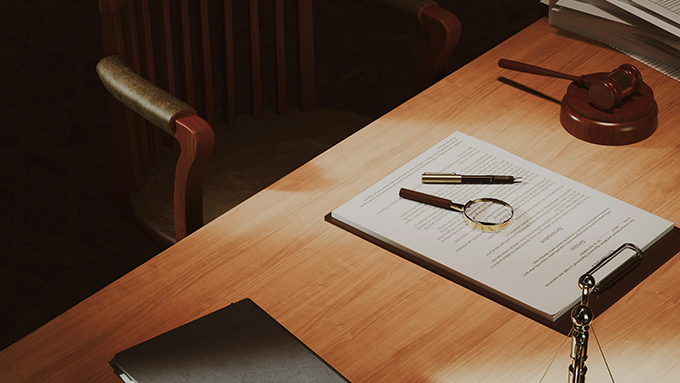Appealing Final Court Decisions
Introduction
In a state where the rule of law prevails, legal remedies are indispensable to eliminate judicial errors through the supervision of court decisions. However, legal disputes must be settled at some point and decisions must be finalized. In this Newsletter, appellate procedures against final court decisions will be discussed in light of the current regulations of Code of Civil Procedure (“CCP”) numbered 6100[1], and the notions of legal remedies, as well as the finality of court decisions, will be explained.
The Notions of Legal Remedies and Finality of Court Decisions
Legal remedies, which are important for legal certainty, may be defined as bringing a court"s decision before a judicial authority for re-examination and evaluation. In the doctrine, it is stated that the legal remedy serves legal certainty, the unity of jurisprudence and the uniform application of the law, enhanced quality of judgment and substantial justice.[2] Yet, it is not possible to talk about unlimited rights to legal remedies. The dispute between parties must come to an end at some point, the decision must be finalized, and the social and legal peace must be established going forward.
Under Turkish law, finality has two aspects: Finality in the formal sense and finality in the material sense. In this context, finality in the formal sense refers to the fact there is no other legal remedy remaining (or there was none at the beginning) that may be applied against a court decision; whereas, finality in a material sense refers to the fact that after the establishment of a final judgment, a second lawsuit that has same parties, subject and reasons may not be filed a second time.[3]
Ordinary and Extraordinary Legal Remedies
In respect of legal remedies, the distinction between ordinary and extraordinary legal remedies is significant. The prominent aspect in this distinction is the finality of the decision against which a legal remedy is lodged. While the subjects of ordinary legal remedies are decisions that have not yet been finalized, the subjects of extraordinary legal remedies are final court decisions.
Principally, after the finalization of a judgment, a dispute is considered permanently resolved for the future. However, very exceptionally, in the presence of some substantial judicial errors, an extraordinary legal remedy can be lodged, and the decision may be abolished even after the finalization of the decision.
In Turkish law, following the establishment of the regional courts on 20.07.2016, two ordinary legal remedies exist: Appeal to the Regional Courts; and Appeal to the Supreme Court. Nevertheless, it is not possible to apply for ordinary legal remedies and lodge an appeal against every decision rendered by the court. Whether or not a legal remedy may be made against a decision is determined by the laws. Accordingly, decisions that may be subject to appeal, and decisions that could be subject to cassation, are respectively referred to in Article 341, et al., and Article 361, et al, of the CCP.
Moreover, in Turkish law, pursuant to Article 374 of the CCP, as an extraordinary legal remedy, renewal of the trial is adopted. Within the scope of the said Article, there are cases against which a retrial may be resorted to concerning finalized court decisions. Since the reasons for a retrial are stated in a limited way (numerus clausus), trial errors, other than the ones stated in the Article, are not considered as a reason for retrial, no matter how severe they are.
Appeal of Final Court Decisions
Leaving aside the extraordinary legal remedies, it is possible to say that a legal remedy cannot be requested concerning a final court decision. As a result of the definition of final judgment, this is a fact. That being the case, in practice, the parties may, at times, apply for ordinary legal remedies even though court decisions are definitive.
Pursuant to Article 346 of the CCP titled rejection of the appeal petition, if an appeal against a final judgement is lodged, the rejection of the request by the court comes to the fore on the grounds that the decision is found to be final. The decision regarding the rejection of the appeal request may be appealed within one week from the notification of the rejection decision. In this case, if the Regional Court does not consider that rejection of the appeal request is accurate, it revokes the decision on the request for rejection of the appeal, and proceeds with the examination of the case, pursuant to the initial appeal petition submitted.
Pursuant to the Article 366 of the CCP, Articles 343-349, and Article 352 of the CPP (which are pertinent for appeal requests before the Regional Courts) are also applicable for appeal requests before the Supreme Court by comparison. Accordingly, if an appeal is filed against a final decision, and the appeal request is rejected, an appeal may be filed against the decision to reject the appeal. This being the case, the file is sent to the Supreme Court.[4] If the Supreme Court considers the decision on the rejection of the appeal request to be erroneous, then it shall revoke the decision and make necessary examination pursuant to the first appeal petition submitted.
On the other hand, if the Regional Court or the Supreme Court decides that the aforementioned decision cannot be appealed, then it upholds the rejection of the appeal request, and does not make any further investigation on the merits of the dispute.
On the other hand, in the case of legal remedy, it should be noted that the court primarily investigates whether the prior decision is final or not. In Article 352 of the CCP titled preliminary examination, it is stated that if it is determined that an application against the final judgment as a result of the preliminary examination on file by the Regional Court (or by the relevant chamber of the Supreme Court) may be made, then the necessary decision shall be taken. Also, the justification of the provision includes the following statements: “[…] The fact that […] the decision of the court of first instance is final does not need any explanation. Moreover, in some of these cases, for example, the situations where the application is made after the legal period has expired, or is related to a final court decision, the first instance court shall also consider this in accordance with the provision of Article 350[5], and the application petition will be rejected. However, if this situation is overlooked by the first instance court, then it shall be considered by the regional court of appeal.[6]"
In light of all of these explanations, it should be stated that the opportunity to apply to the Regional Court and the Supreme Court against the decision to reject the appeal request should not be used maliciously and considered as a way to bypass the law. This possibility has been envisaged by the legislator, and a regulation has been made in order to eliminate bad-faith applications for legal remedies. Accordingly, in the event of an appeal to the Regional Court (Article 351 of the CCP) or Supreme Court (Article 368 of the CCP) in bad faith, Article 329 of the CCP regarding the consequences of filing a lawsuit that is unfair or in bad faith is applied. The aforementioned provision is as follows:
“The malicious defendant or the party who filed a lawsuit in the absence of any rights may be ordered to pay all or part of the attorney"s fee agreed between the other party"s attorney, other than the trial expenses. If there is a dispute about the amount of the attorney"s fee, or the court finds the amount excessive, it is directly determined by the court.
The malicious defendant, or the party who filed a lawsuit in the absence of any rights, may be further imposed with a disciplinary fine of from between five hundred Turkish Liras up to five thousand Turkish Liras. If the attorney has caused such cases, a disciplinary fine is applied to the attorney.[7]”
It is clear that this provision was introduced with the aim of deterring people who would be tempted to act in bad faith. As a matter of fact, this is clearly stated in the justification of the related Article.
Conclusion
Legal remedies serve many purposes, such as providing legal certainty, unity of jurisprudence, ensuring the uniform application of the law, enhanced quality of judgment and substantial justice. However, disputes need to be settled at some point. The final judgment is important for the settlement of disputes for the future and, thus, ensuring legal peace and judicial trust. This being the case, it is seen that, in practice, the ordinary legal remedy is sometimes resorted to against final court decisions. This practice is open to criticism in many ways, and is considered to be worthwhile by the legislator, as well.
- This Newsletter mainly focuses on the system being implemented after the regional courts of appeal took office and, in this context, the previous legal remedy system is not separately reviewed. At this point, it should be noted that decisions rendered by the first instance courts prior to 20 July 2016 (the date the regional courts of appeal took office) (until they are finalized) the previous system shall remain applicable in this respect.
- Pekcanıtez, Hakan: Medeni Usul Hukuku, Cilt 3, On iki Levha Yayıncılık, 2017, p. 2151.
- Pekcanıtez, Hakan: Medeni Usul Hukuku Temel Bilgiler, Vedat Kitapçılık, 2018, p. 309.
- Pekcanıtez, Hakan: Medeni Usul Hukuku, Cilt 3, On iki Levha Yayıncılık, 2017,p. 2292.
- The aforementioned provision was enacted as Article 346 of the CCP.
- Translated by the author.
- Translated by the author.
All rights of this article are reserved. This article may not be used, reproduced, copied, published, distributed, or otherwise disseminated without quotation or Erdem & Erdem Law Firm's written consent. Any content created without citing the resource or Erdem & Erdem Law Firm’s written consent is regularly tracked, and legal action will be taken in case of violation.
Other Contents

Mediation was introduced into the Turkish legal system in 2012 as a voluntary dispute resolution mechanism and has produced successful outcomes over time.
As of 1 January 2018, mediation became a mandatory precondition to litigation in certain disputes arising from labor law; as of 1 January 2019…

The Court of Cassation General Assembly on Civil Matters (“General Assembly”), by its decision dated 08.10.2025 and numbered 2024/572 E. and 2025/607 K. (“Decision”), in the dispute brought before it, prior to examining the merits of the matter, discussed and assessed as a preliminary issue whether the…

Article 326 of the Turkish Code of Civil Procedure No. 6100 (“CCP”) stipulates that, where the parties are each partially successful in the proceedings, litigation costs shall be allocated between them in proportion to their respective degrees of justification…

One of the most significant safeguards afforded by the right to a fair trial is the right of access to a court. Moreover, one of the essential components of the right of access is the ability of individuals to make effective use of appellate and other legal remedies…

The Turkish Constitutional Court (“TCC”), in its decision dated 17 June 2025 and numbered E.2024/237, K.2025/137 (“Decision”), decided that significantly reshapes civil procedural law. The Court annulled the phrase “…and this decision shall be binding on the other court” contained in Article 166(1) of the Code...

With its decision dated 22.05.2024 and numbered 2022/31465 E. (“Decision”) published in the Official Gazette dated 22.10.2024 and numbered 32700, the Constitutional Court examined the claim that the decision to deem the case as not filed due to the failure to complete the addresses and identification numbers...

Under the principle of “procedure precedes substance” prevailing in Turkish law, the correct determination of the period for filing a lawsuit is crucial. In its decision dated 02.05.2024 numbered 2020/13187 E. and 02.05.2024 K. (“Decision”), the Constitutional Court examined the claim that the right of access...

The Code of Civil Procedure (“CCP”) regulates the judicial procedure in our jurisprudence and foresees prescription periods at each stage. Prescription periods constitute a form of sanction that causes the loss of the use of the right for the party who does not comply with the time limit...


The concept of intervention has fundamental differences in administrative trial procedure compared to civil procedure. These differences are critically important in terms of the intervenor’s right to seek legal remedies in the administrative trial procedure. As is known, there are two ways to become a plaintiff in an...

With its decision dated June 8, 2023 on the application numbered 2019/17969, the Constitutional Court, as published in the Official Gazette numbered 32331 on October 6, 2023 (“Decision”), considered the rejection of a lawsuit for an unquantified debt related to the payment of labor dues due to the absence of a legal...

The Grand General Assembly of the Unification of Jurisprudence ("GGAUJ") ruled with the Decision of the Grand General Assembly of the Unification of Jurisprudence dated 28.04.2023 numbered 2021/5 E. 2023/2 K. ("Decision") that if the legal remedy period is erroneously indicated longer in the decision in...

The issue of proving damages in cases related to the excess damages is frequently subject to the examination and evaluation of both the Supreme Court and different chambers of the Court of Cassation. With its decision dated 29.03.2022 and numbered 2021/928 E. 2022/401 K., the Court of Cassation General...

Under Turkish law, the term “limits of certainty” refers to monetary limits to the rights of appeal and cassation. While it is possible to appeal to a higher court against the decisions of the courts of the first instance and the courts of appeal where the amount of the claim or the value of the case is above these...

The Court of Cassation General Assembly of Civil Chambers and the Chambers of the Court of Cassation both issued opinions on whether a lawsuit filed for not due receivables should be dismissed with or without prejudice by the court on the grounds that the time of performance has not yet come, and whether the...

In general terms, the amendment of pleading is accepted as an exception to the prohibition of expanding and amending claims and defenses. With the amendment of pleading, the parties can partially or completely correct or amend the procedural actions that they could not perform due to the prohibition...

The possibility of appellate review of questions of fact, as well as of law, was introduced into Turkish law with an amendment made in the abrogated Civil Procedure Code No. 1086, through Law No. 5239 dated 26.09.2004. However, the Regional Courts of Appeal, which are the courts...


Recently, the requirements of unquantified debt lawsuits have been subjected to the examination and review of the Court of Cassation. The Court of Cassation General Assembly of Civil Chambers, in its decision dated 07.07.2021 and numbered 2021/485 E. 2021/971 K. (“Decision”), examined whether...




















